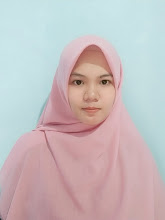Colors are an everyday part of our lives, but color theory is
a complex area of study that deals with all combinations of light and color in
the visible spectrum. While a thorough understanding of color and color
combinations requires significant study, even young students can gain a basic
understanding of color and how colors interact through simple activities and
instruction. Young children can learn to differentiate between colors, while
more advanced learners can predict the interactions between colors and pair
colors for pleasing visual results.
Children's Activities
Games
Games
- Ask children to group
items such as colored blocks into groups of the same color to rehearse color
identification. Colored blocks, crayons or stacks of paper in various colors
are all suitable materials for color grouping activities.
-
Instruct students to
use specific colors on drawings or paintings. Clear instructions such as
"color the apple green" challenge students to identify the proper
colors to complete an assignment.
- Play a simple game of
"I Spy." Begin by identifying an item of the room in a specific
color. Begin with, "I see something green." The child then attempts
to guess the item by listing all green objects in the area.
- Assign coloring
activities to introduce the primary colors red, blue and yellow. Instruct
students to create colored picture posters for each of the primary colors with
images depicting items in each color.
Color Wheel
Activities
1. Give each student a large piece of white construction
paper. Instruct students to draw a triangle in the center of the paper. On each
corner of the triangle, color a circle with one of the primary colors.
Traditional color wheels feature yellow at the top, red in the right-hand
corner and blue in the left-hand corner. Instruct students to label the color
circles with a "P" for "primary."
2. Provide students with three clear plastic cups and
food coloring in the primary colors. Instruct students to use their color wheel
to combine two of the primary colors adjacent to one another to create
secondary colors. For example, in the first cup have students place five drops
of yellow food coloring with five drops of red to make orange. In the second,
have students mix five drops of red and five drops of blue to make violet.
Because food coloring stains, provide rubber gloves as well.
3. Add the secondary colors in their respective locations
between the corresponding primary colors on the students' color wheels. Label
the secondary colors with an "S."
4. Demonstrate how to identify opposing, or complementary
colors, on a color wheel. Complementary colors are colors that appear opposite
one another on the color wheel. Instruct students to create complementary color
drawings using only shades of two complementary colors.
5. Provide students with tempura paints in the primary
and secondary colors. Instruct students to use clean paint brushes to
experiment with mixing colors to create new colors. Challenge students to alter
the ratio of one color to another. Keep a chart of the color combinations and results.
6. Review students' color combination charts and explain
the definition of tertiary colors. Tertiary colors are created when you combine
a primary color, like red, with a secondary color, like purple, to make a third
kind of color, like rose. Use tertiary colors to fill in any extra spaces on
students' color wheels.
7. Instruct students to create a color chart of their
most liked and most disliked color pairs. For example, a student may list
yellow and purple as a liked pair but green and orange as a disliked pair.
Share the charts with the class and lead a discussion of trends in preferable
and disliked pairs and how the preferences relate to the position of the colors
on the color wheel.
Vocabulary
Visible : kilihatan, tampak
Pair : sepasang
Suitable : cocok, sesuai
Paintings : lukisan
Tertiary :
ketiga
Assign :memberikan
Adjacent :berdekatan,
terbatas
Depicting : melukiskan,
mengambarkan
Corner :
sudut
Stacks: tumpukan
Focus on
1.
Reading
1) What is color?
answer:.............................................................................................................................................................................................................................................................................................................................................................................................................................................................................................................................................................................................................................................................................................................................................................................................................................................................................................................................................................................................................................................................................................................................................................................................................
2) Mention the instruction for children activities and color wheel activities!
answer.............................................................................................................................................................................................................................................................................................................................................................................................................................................................................................................................................................................................................................................................................................................................................................................................................................................................................................................................................................................................................................................................................................................................................................................................................
3) What is your opinion about color? And why color is important young learner?
answer:................................................................................................................................................................................................................................................................................................................................................................................................................................................................................................................................................................................................................................................................................................................................................................................................................................................................................................................................................................................................................................................................................................................................................................................................................................................................................................................................................................
4) According to you, teaching color to your learner, is it effective? give your reason
answer:.............................................................................................................................................................................................................................................................................................................................................................................................................................................................................................................................................................................................................................................................................................................................................................................................................................................................................................................................................................................................................................................................................................................................................................................................................
5) What is the synonym "visible" ?
answer:....................................................................................................................................................................................................................................................................................................................................................................................................................................................................................................................................................................................................................................................................................................................................................



0 comments:
Post a Comment